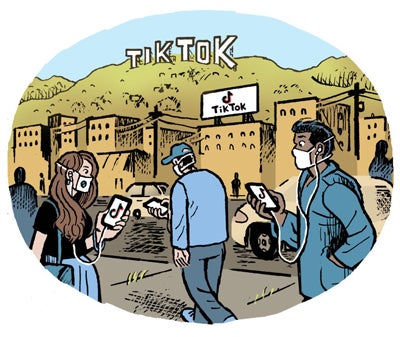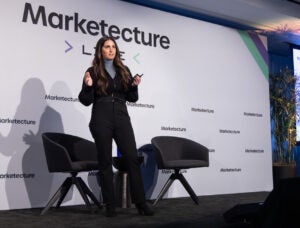Legislative drama notwithstanding, it’s time to look at TikTok Shop as a first potential sign that live online shopping in the US can be, well, a thing.
So what are TikTok’s prospects for creating a hybrid social media and shopping platform?
TikTok is the closest example yet of livestream shopping happening organically and with meaningful scale.
But there are also signs of painful limitations on TikTok Shop.
Who’s winning on TikTok Shop?
Consider the best-selling items in the US on TikTok. Have they captured the impulse purchase? Are brands sold in Walmart or Target taking note?
Not really.
Tabcut, a TikTok analytics vendor used by sellers on the platform, keeps track of the top product sales in the US.
The top seller by far in September, according to Tabcut data, was Goli Nutrition, which sells apple cider vinegar gummies and other vitamins. Of the sellers based in the US that have millions of dollars in monthly sales on TikTok Shop, there are numerous perfume and fragrance wholesalers, as well as Collagen supplements and multivitamins. There’s the cosmetics brand Gopure, which has products like a “neck firming cream” and an “anti-wrinkle moisturizer.”
Then there are products like inexpensive hair-curlers, woman’s underwear and clothing brands, and an individual standout called CAKES, which makes nipple covers to wear under sheer clothing.
Where TikTok Shop really shines, it seems, is with products that don’t sell effectively on Facebook, Instagram, YouTube and Google. Partly that’s because TikTok has native affiliate network functionality, which the others don’t, and partly because Google and Meta have prohibited targeting and ad creative for many of those types of products.
The social emotional mess
Beginning in 2022, Meta began a major cleanup of its interest-based targeting, said one makeup seller who spoke to AdExchanger anonymously about their strategies on Instagram and TikTok.
Crypto and sports gambling brands were problematic advertisers at the time that regulators remain on edge about. But Instagram made a broader fundamental change away from targeting by any emotional signals.
There were some obvious and cynical tactics, like skincare brands targeting searches for content related to women who were aging, or supplement sellers targeting people who were obviously trying to lose weight.
But Instagram targeted emotion-based targeting, not just bad emotions, said the makeup marketer. Her brand had campaigns built around “Feel food Friday.” And these campaigns were blocked for targeting emotional swings.
Ads that feature words like “nipple,” “collagen” and “neck wrinkles” might be flagged by the Meta ad platform even if it’s part of the actual product description.
Whereas Instagram is now quick to block an ad that touches on body image and mental well-being, or makes health benefit claims, TikTok feels like a Wild West, one DTC advertising consultant told me. TikTok will allow campaigns for supplement or skincare brands that intimately target people talking about depression, prescription medications, and other expressions of great positivity or insecurity.
And it actually gets worse.
A report by the Times earlier this year documented how Instagram accounts selling swimwear, leotards and other similar items were being taken advantage of and creeped upon by older men.
Some of the best-selling products in the US on TikTok include nipple covers, tight-fitting bodysuits for wearing under dresses, hair curlers and athletic bras. In other words, things that women on TikTok are demonstrating while they get dressed.
Any reason for optimism?
Not all of the examples on the TikTok Shop leaderboard are so sinister.
For instance, why do fragrances and perfume sell so much on TikTok?
I suspect it’s related to why mattress startups were early standouts on Facebook. In retail, those products have crazy-high marketing margins built into the price. In other words, perfume is not expensive to make, and neither are mattresses, relative to their price. Those products cost a lot because companies spend a lot on advertising per sale.
A perfume brand can offer very generous affiliate incentives, lower the price and spend a lot on social advertising, while still earning more by selling online rather than a perfumery or a Macy’s store.
In a way, that’s an example of how TikTok Shop is on a similar trajectory as Facebook and Instagram with the DTC brand economy.
But if TikTok Shop is going to really take off and prove that live video shopping has a future in the US, it needs to move general merchandise and consumer goods. The products that are great for selling on TikTok Shop right now represent a bigger problem than a profit center moving forward.













